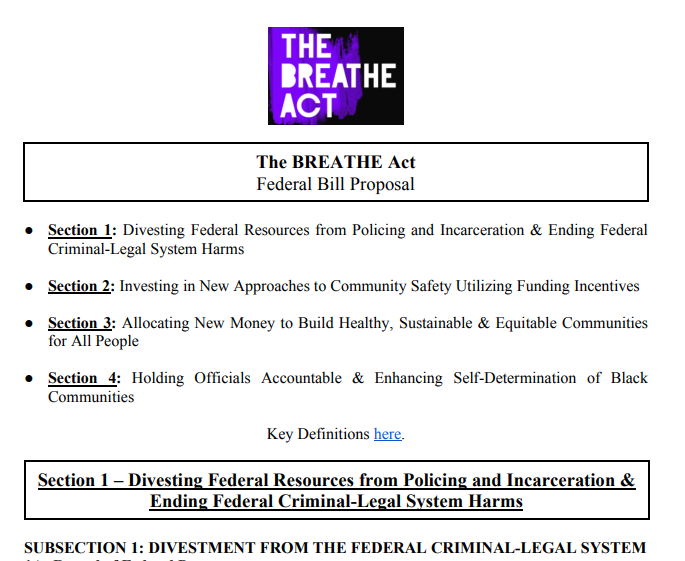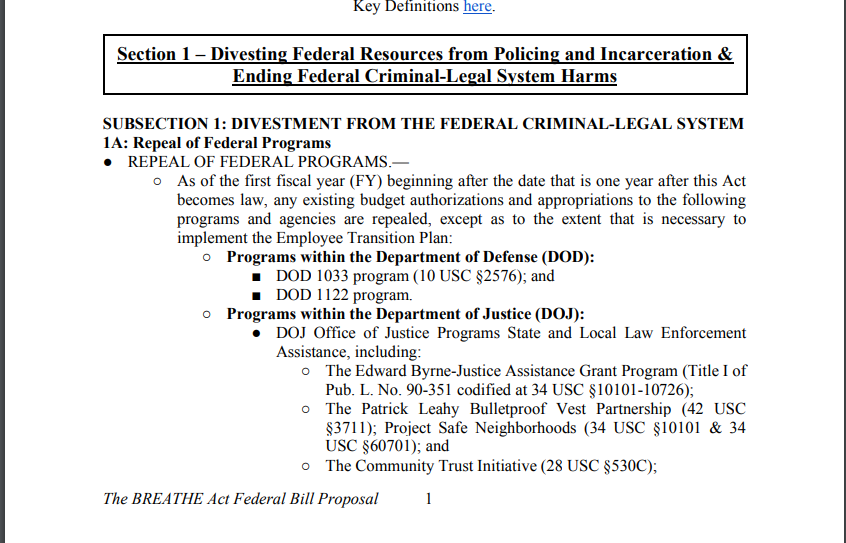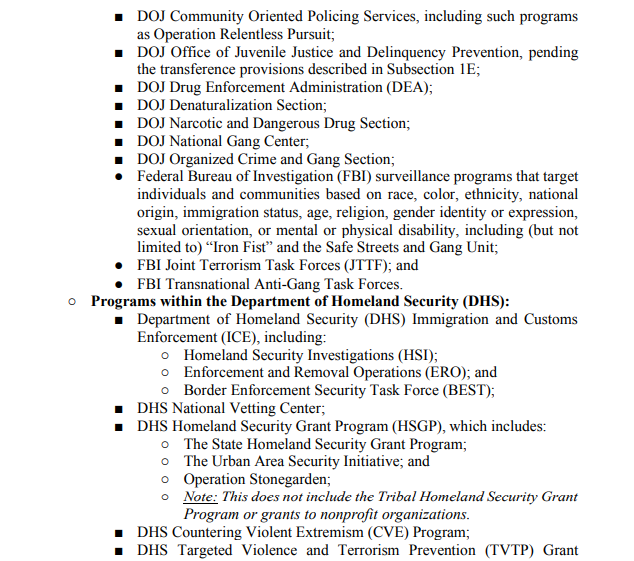More from Legal
LATEST:
#BLM & Movement for Black Lives are promoting a 128 page bill that brings their radical protest demands into political reality.
The bill eliminates DoD ops, stops counter-terrorism programs, offers social services to illegal immigrants, &
Due to the exorbitant length of the bill (it's 128 pages) I have to explain the specifics of the BREATEHE act in sections. This article only includes the first section of the bill, which is pages 1-10.
You can find the full bill here: https://t.co/3WgchuFqXf

In the first 10 pages, the BREATHE Act moves to:
1. Repeal federal funding for local law enforcement.
The first two pages alone "abolishes" the D.E.A. and removes local law enforcement's ability to access federal funding for bulletproof vests.

2. Eliminate Department of Homeland Security (@DHSgov) programs, including ICE and Countering Violent Extremism (CVE) programs.

The specific programs that they move to abolish include:
ICE
Border Enforcement Security program
Countering Violent Extremism program
Targeted Violence and Terrorism Prevention Program
United States Citizenship and Immigration Services Denaturalization Program
#BLM & Movement for Black Lives are promoting a 128 page bill that brings their radical protest demands into political reality.
The bill eliminates DoD ops, stops counter-terrorism programs, offers social services to illegal immigrants, &
Due to the exorbitant length of the bill (it's 128 pages) I have to explain the specifics of the BREATEHE act in sections. This article only includes the first section of the bill, which is pages 1-10.
You can find the full bill here: https://t.co/3WgchuFqXf

In the first 10 pages, the BREATHE Act moves to:
1. Repeal federal funding for local law enforcement.
The first two pages alone "abolishes" the D.E.A. and removes local law enforcement's ability to access federal funding for bulletproof vests.

2. Eliminate Department of Homeland Security (@DHSgov) programs, including ICE and Countering Violent Extremism (CVE) programs.

The specific programs that they move to abolish include:
ICE
Border Enforcement Security program
Countering Violent Extremism program
Targeted Violence and Terrorism Prevention Program
United States Citizenship and Immigration Services Denaturalization Program
You May Also Like
Recently, the @CNIL issued a decision regarding the GDPR compliance of an unknown French adtech company named "Vectaury". It may seem like small fry, but the decision has potential wide-ranging impacts for Google, the IAB framework, and today's adtech. It's thread time! 👇
It's all in French, but if you're up for it you can read:
• Their blog post (lacks the most interesting details): https://t.co/PHkDcOT1hy
• Their high-level legal decision: https://t.co/hwpiEvjodt
• The full notification: https://t.co/QQB7rfynha
I've read it so you needn't!
Vectaury was collecting geolocation data in order to create profiles (eg. people who often go to this or that type of shop) so as to power ad targeting. They operate through embedded SDKs and ad bidding, making them invisible to users.
The @CNIL notes that profiling based off of geolocation presents particular risks since it reveals people's movements and habits. As risky, the processing requires consent — this will be the heart of their assessment.
Interesting point: they justify the decision in part because of how many people COULD be targeted in this way (rather than how many have — though they note that too). Because it's on a phone, and many have phones, it is considered large-scale processing no matter what.
It's all in French, but if you're up for it you can read:
• Their blog post (lacks the most interesting details): https://t.co/PHkDcOT1hy
• Their high-level legal decision: https://t.co/hwpiEvjodt
• The full notification: https://t.co/QQB7rfynha
I've read it so you needn't!
Vectaury was collecting geolocation data in order to create profiles (eg. people who often go to this or that type of shop) so as to power ad targeting. They operate through embedded SDKs and ad bidding, making them invisible to users.
The @CNIL notes that profiling based off of geolocation presents particular risks since it reveals people's movements and habits. As risky, the processing requires consent — this will be the heart of their assessment.
Interesting point: they justify the decision in part because of how many people COULD be targeted in this way (rather than how many have — though they note that too). Because it's on a phone, and many have phones, it is considered large-scale processing no matter what.



























